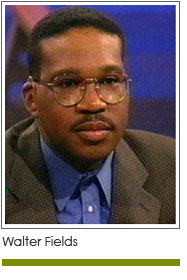 In the United States we have grown accustomed to associating Africa with almost everything negative and viewing the continent as a vast wasteland. It is part of our nation’s centuries old disdain for the continent from which indigenous populations were enslaved in the trans-Atlantic slave trade; the first truly global trade in humankind. This view of Africa has been perpetuated by the media and erroneous historical accounts that give little credit to Africans for their enormous contributions to civilization and assigned responsibility for any achievements of note to European colonizers. In the minds of most Americans, political corruption, famine, poverty and AIDS are the defining characteristics of the continent; not a thirst for democracy. It is why current media coverage of the citizen rebellion in Egypt leaves much to be desired.
In the United States we have grown accustomed to associating Africa with almost everything negative and viewing the continent as a vast wasteland. It is part of our nation’s centuries old disdain for the continent from which indigenous populations were enslaved in the trans-Atlantic slave trade; the first truly global trade in humankind. This view of Africa has been perpetuated by the media and erroneous historical accounts that give little credit to Africans for their enormous contributions to civilization and assigned responsibility for any achievements of note to European colonizers. In the minds of most Americans, political corruption, famine, poverty and AIDS are the defining characteristics of the continent; not a thirst for democracy. It is why current media coverage of the citizen rebellion in Egypt leaves much to be desired.
For purely political purposes and sociological impact, the media has assigned Egypt to the “Middle East,” with little reference to Africa and the powerful drive for democratic rule among African people. The country is regularly described as part of the “Arab world” with no mention of it being an African nation. The public sees Africa as being below the Sahara; the “dark continent” of Hollywood cinema where Black nations are ungovernable and Black Africans as uncivilized. The other predominant view is that of the continent as “exotic,” a National Geographic landscape of wildlife and natural wonders. Very few Americans equate Africa or Africans with populations desirous of self-governance, honest government and full, democratic participation. Despite the historic political revolution in South Africa, the continuing maturation of Ghana, the relative stability of Botswana, and the current crises in Egypt and Tunisia, the continent gets no credit for its role as a wellspring for freedom.
The events unfolding in Egypt and Tunisia speak to a continent that is on the verge of change. The calls for the ouster of President Hosni Mubarak are not the result of a sudden, overnight impulse on the part of the Egyptian people. What we are witnessing is the result of decades of pent up frustration in Egypt’s citizens over the administration of law and justice, and economic conditions under Mubarak. While there is legitimate concern over what or who will succeed Mubarak, the status quo is unacceptable to Egyptians and they have made their opinion known in a forceful demonstration of citizen outrage. It remains to be seen if what follows is better governance or more of the same, or worse case scenario, a government more oppressive than the present regime. No matter, this is still a powerful display of an African movement for freedom and justice that is reminiscent of protests in Tiananmen Square in China, demonstrations in South Africa during apartheid and anti-war rallies in the United States at the height of the Vietnam War. Controversy surrounded the anticipated outcomes of those movements too but the fervor for change was evident in the voices of those in the streets.
Sadly, the American public is missing out on the real significance of this truly significant African moment. Our fascination with Egypt moment is restricted to romanticism over the antiquities and the stylized Hollywood epics where white actors portrayed historical figures of Biblical times. Today, we hear the protesters described by national origin (Egyptian), ethnicity (Arab) and religion (Islamic), with hardly a mention of the one unifying characteristic they share with their brethren on the continent – African. While there are many and complex reasons why a global African identity does not exist, the power of change in “Africa” loses its potency for the worldwide African community, including African-Americans, when the continent is overlooked in this way.
All of the blame does not rest on the shoulders of the media. Too few children in our nation learn the true history of the development of the African continent, and its people. In fact, the geography of the continent is hardly known as, until recently, even cartographers had mistakenly underestimated the true geographical dimensions of Africa. The current uprising in Egypt and turmoil in Tunisia is another one of those “teachable” moments when we can learn a little more about Africa and hopefully enlighten those among us who view the continent as a recurring tragedy.
Walter Fields is Executive Editor of NorthStarNews.com.












